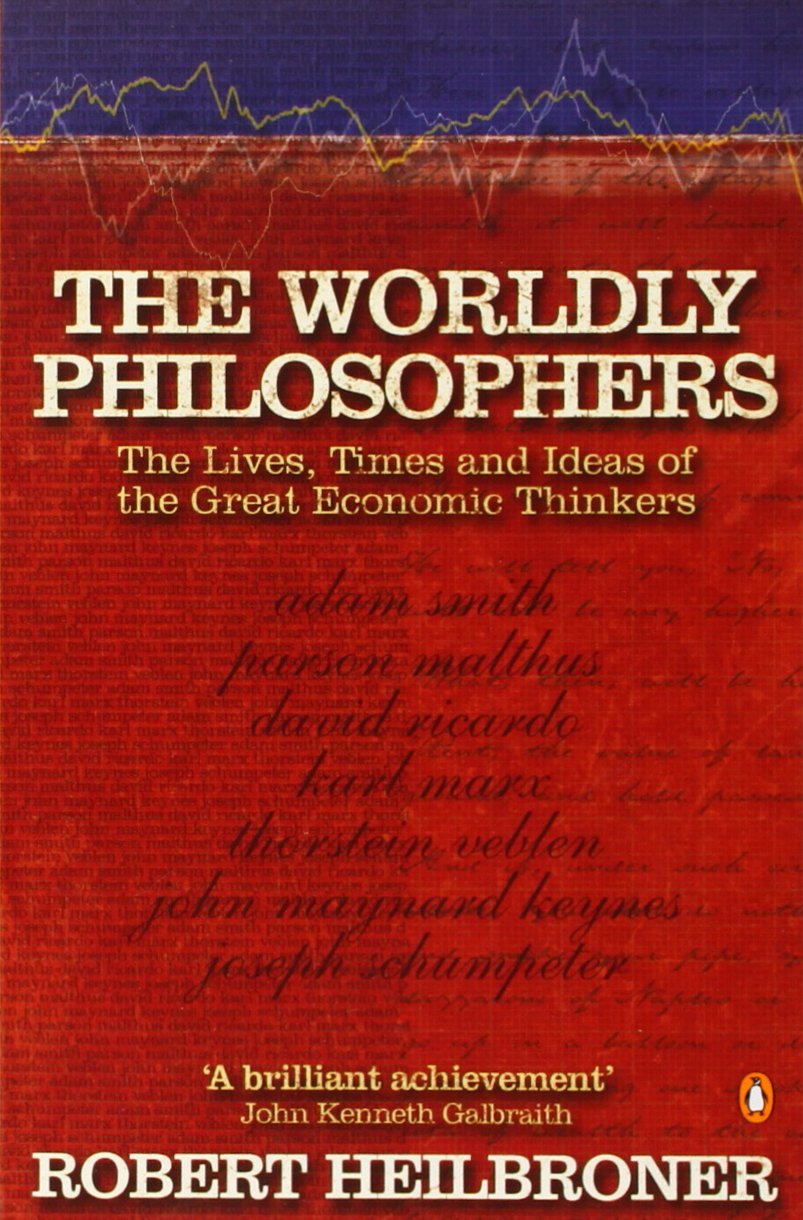
The Worldly Philosophers: The Lives, Times, and Ideas of the Great Economic Thinkers
FREE Shipping
The Worldly Philosophers: The Lives, Times, and Ideas of the Great Economic Thinkers
- Brand: Unbranded

Description
Unlike Thomas Malthus and Karl Marx in the previous century, John Maynard Keynes looked forward to better times for capitalism in the twenty-first century. In his Economic Possibilities for Our Grandchildren, he predicted that by the year 2030, the age-old problem of equal distribution of wealth might be solved. Even though Keynes did not foresee the panacea immediately after World War I, in later years he deduced that capitalism would continue its upward climb. Certainly he could not attribute the easing of hard times to the bounties of nature, since the supply of raw materials was quite obviously finite and dwindling. Instead he lauded the ability of factory workers to utilize technology, thereby making each succeeding generation more productive. For example, in the 1960s, American workers turned out over five times the goods per hour in comparison with their forebears a century earlier. In like manner, Keynes envisioned a rosy future for his native England, calculating that by the year 2060, the nation would produce seven and one half times the wealth of the past century. For the Marx Team, at least, its importance derives from the fact that it dictates the relationship of Workers with the product of their labor (alienation), as well as the quality of their life (subjugation to Caterpillarists). Ultimately, even this difference would be reflected primarily in the relative level of remuneration.
The Age of Exploration and Discovery (l5th-l7th centuries) — an era which saw the rise of wealth in gold, silver, and raw resources from colonies in the New World.Perhaps, this passive state of affairs is a product of Social Democratic governments that intervene in Caterpillarism. My favourite chapter was undoubtedly the one on Keynes, since Keynesian economics was greatly influential to the development of global economic relations post the new deal and Heilbroner lays out the theory in simple terms while also providing insight into Keynes' unconventional personal life.
The Scientific Revolution (1500-1700) — the discovery of scientific principles which laid the foundations for the Industrial Revolution. Accordingly, Adam Smith's proposals for protective measures for workers, farmers, consumers, and society as a whole; the abolition of slavery; and the control of monopolies were ignored. Capitalists championed the Wealth of Nations as a vindication of corrupt business practices. In this way, Adam Smith, the soft-spoken scholar, became the patron saint of free enterprise in the capitalistic world. In later times, Adam Smith, by thoroughly describing and explaining the market system, became the father of modern economics. Practical men, who believe themselves to be quite exempt from any intellectual influences, are usually the slaves of some defunct economist." - Maynard Keynes According to Smith, under the market system each worker freely chooses a trade. Through such a multitude of choices, society reaps the benefit of having all its necessary tasks filled. The individual, motivated by self-interest, selects a particular task. Competition for these tasks prevents the individual from over-charging society. Thus, the two laws of the market — self-interest and competition — react upon each other and form a balance, guaranteeing the survival of society. I have never formally studied economics for any extended period of time. Although I originally wanted to be a chemical engineer, I am terrified by any book that contains mathematical formulae.Laissez Faire Literally, "let [it] function" — the economic doctrine founded by Quesnay and the Physiocrats and expounded by Adam Smith, stressing no governmental interference in the operations of the market economy. Does capitalism, or the market system, actually operate in this way? It did during Smith's time, for the business world was a world of atomistic, or elemental, competition. Yet, there was evidence that a large number of people did not profit from the system. Still, even though more than an eighth of England's population in 1720 was poor, Smith insisted that society could not flourish if "the greater part of the numbers are poor and miserable." In his radical view, society was definitely improving. By comparison, the capitalistic world of today differs greatly with its giant corporations and massive labor unions. However, the twin laws of self-interest and competition still form the basis of the market system. Industrial Revolution The transition from the stable agricultural and commercial society of the Western world to the modern industrialized society; the second stage of capitalism. The Worldly Philosophers is a useful book — not only to college students, but to any person wishing an understanding of economics. Basically the book offers three benefits:
- Fruugo ID: 258392218-563234582
- EAN: 764486781913
-
Sold by: Fruugo
